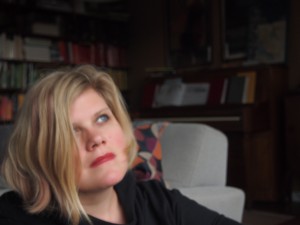Jeremiah 29:4-9
Woodside Road UMC, Redwood City, CA
I’m not going to lie: I spend too much time on the interwebs.
In my defense, after years of being a pastor,
an extrovert who likes being with people,
a thinker who likes talking about big ideas,
I am now a stay at home parent,
and I have been home with my three kids all summer. And by “home” I really do mean “home”. We’re saving up vacation time for a thing this fall. Meanwhile, my kids’ friends are on vacation or in day camps. We don’t live on a block where the neighborhood kids roam yard to yard. Except for one precious week, my kids have not been in camps. So, this summer I have delved full on into the world of intensive parenting.
To keep in touch with a world beyond legos, laundry, and magic marker accidents with the baby, I pop over to facebook and twitter and check how the world is doing.
And the world is kind of a mess.
I am near tears whenever I read about refugees in Europe,
I’m embarrassed at my country’s inability to take care of people who come to us for refuge.
I am so angry about the way that we treat black people in America.
I am sad about the state of politics, Republican and Democrat.
I am worried for my two daughters,
growing up in a world that just can’t figure out how to treat women as equals.
I am floored by the responsibility of raising my son to be a man
who doesn’t believe that he should always get what he wants just because he’s a white man.
I am grieved for children in other countries
AND in the urban US who live in places where bullets fly.
I could go on. You could, too.
And sometimes, I just want to crawl into bed and pull the covers over my head because it is all too much, this echo-chamber of everything that is wrong with the world.
But, I suspect that Jesus wants me to do something about it. So instead of burying my head under a pillow,
I try to fit in time to write a letter to my congressperson,
or to make a little donation here or there.
I contemplate throwing on my clerical collar and heading to a protest, but it often interferes with the baby’s naptime, or the 5 year old is just too squirmy to make it practical.
What I can do to fix the world seems pretty insignificant. I’m supposed to love my neighbor.
But there are so many neighbors to love, so many injustices to address. And in the meantime, I still have to do the laundry.
How much can I really do?
It is almost backwards that I find some comfort for my pessimism in this passage from Jeremiah. This is a word written originally for people who were too optimistic. I
t’s written to the people of Israel, in exile in Babylon, who are hearing from some prophets that the return to Israel will happen soon. Don’t get too comfortable: we’ll be going home before we know it.
But Jeremiah has a different take. This exile is going to be a little longer than we expected.
And so, this is our reality,
this place,
this time,
these people.
We need to settle in and do what God would have us do in the place where we find ourselves.
Stop packing.
Plan a wedding.
Plant a garden.
Put down some roots.
I think it’s pretty common that we do not find ourselves in exactly the place we wish to be.
It might be that we are in exile from the place we always imagined for ourselves.
Or perhaps our relationships aren’t what we envisioned.
We are living life without someone who was central to our being.
We are not where we ought to be financially.
And sometimes, that feeling of exile also extends to our sense of what we’re supposed to be doing for God.
We find ourselves in life circumstances where we feel like we just can’t do enough to work toward the justice and peace that God desires for the world.
Now, there are times when our circumstances become a cop out. I certainly acknowledge that. We probably could do more.
But we also need to recognize that it is OK to be called to rather mundane things.
Like doing the laundry.
Being an excellent lawyer.
Coaching a kid’s baseball team.
Taking the kids camping.
Repairing the fence.
Planting a garden.
Here’s where Jeremiah 29 helps me.
We might need to peel our eyes off of the internet, out of the newspaper, and off of cable TV to be reminded of our current location.
What am I called to right now?
And where am placed right now?
Who has God placed next to me and who does God ask me to recognize as my nearest neighbors?
What patch of earth is mine to tend?
In a way, this is what Jeremiah is telling Israel:
you are so focused on the big picture
that you are losing sight of your own backyard.
So, what can you do
in the mundane world of your own backyard
to help God’s Kingdom come?
Or, for that matter, at your work desk,
during your commute,
with your morning exercise group,
in your bookclub?
Because love and compassion begin with every person you encounter.
I’m struck by how Jesus, in his life, was headed for a show-down with the greatest earthly power of his time, not to mention a show-down with cosmic forces of sin and evil…
and yet the radical acts that get him to that showdown?
Everyday love and compassion for the people he encountered along the way.
What does that look like for you?
Take a moment to think of the people you might encounter in a regular day.
Some of them are people you know and love well:
partners and children and parents and friends.
Some are people you encounter in the business of your day and don’t always slow down to notice:
Your boss;
Fellow co-workers;
Your kids’ teachers;
The neighbor who is not really your favorite.
Some of them are the people you might overlook:
the checkout cashier;
The landscapers;
a family living out of their camper in a parking lot;
What happens when you see each of those people
with the eyes of Jesus?
What happens if you love them because God loved you first?
Doesn’t it shift the world just a little when we slow down, take notice, and show compassion to the person who just happens to be next to us in the moment?
What if I remind myself that, just as much as any protest, my call right now is to raise these three children to look at people as Jesus looks at them, with love and compassion? That might bear fruit as much as any protest.
Maybe this is my patch of ground for the time being.
And what happens when you have a conversation with someone, and there’s a moment when grace, compassion, or justice might be spoken?
A few weeks ago, in my morning exercise class, our 24 year old instructor, rather bravely, I thought, said, “Did you all see the latest news about a black man shot by the police?!?” And then, for the next 10 minutes, in between ab exercises, a bunch of us, affluent suburban white people talked quite honestly about race in America.
It was so small. But it was like a fresh shoot in the garden. I thought, maybe we are going to be OK.
There is so much we could do. But maybe in trying to do too much we miss the places where we are deeply called. Maybe in doing too much, we miss our garden.
My friend Cat reminded me of this quote this week. It’s from Thomas Merton, who was an early 20th century society mover and shaker… until he became a monk, and lived a quiet, contemplative life.
There is a pervasive form of contemporary violence to which the idealist most easily succumbs: activism and overwork. The rush and pressure of modern life are a form, perhaps the most common form, of its innate violence. To allow oneself to be carried away by a multitude of conflicting concerns, to surrender to too many demands, to commit oneself to too many projects, to want to help everyone in everything, is to succumb to violence. The frenzy of our activism neutralizes our work for peace. It destroys our own inner capacity for peace. It destroys the fruitfulness of our own work, because it kills the root of inner wisdom which makes work fruitful.
So, here’s Merton, reminding us with Jeremiah, that we need to take care of our own gardens. I love this. Because it’s not just about “inner peace” (our OWN inner peace). But a reminder that we need to take care of ourselves in order to care for the world. We can get sucked in and do too much, and miss the true, concentrated places to which we are called.
And if we kill off our inner roots, we lose our connection to the source of love and compassion, the God who calls us to the places where our God-given gifts are most needed.
Friends, there is so much, and it is overwhelming.
But there are so many of us, so many whom God is calling. And each little patch of earth that we tend? It becomes a toe-hold for the kingdom of God.
And all together? Where we see a patch of justice and peace cultivated here and there? That’s just the picture we can see. In the mind of God, it is so much bigger.
May it begin with the smallest seeds.
And may it end in a new creation.
Thanks be to God.
]]>




